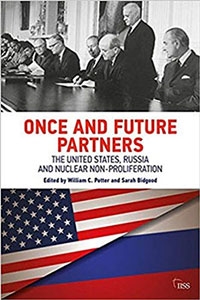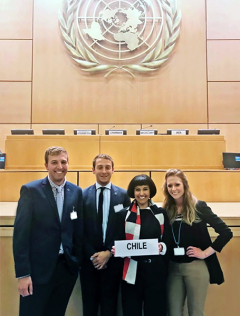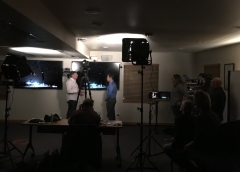Professor and Alumna Co-Edit New Volume on U.S.-Russian Cooperation on Nonproliferation
| by Jason Warburg
William C. Potter and Sarah Bidgood of the Institute’s James Martin Center for Nonproliferation Studies (CNS) celebrated the launch of their new co-edited volume Once and Future Partners: The United States, Russia, and Nuclear Non-proliferation earlier this month.



